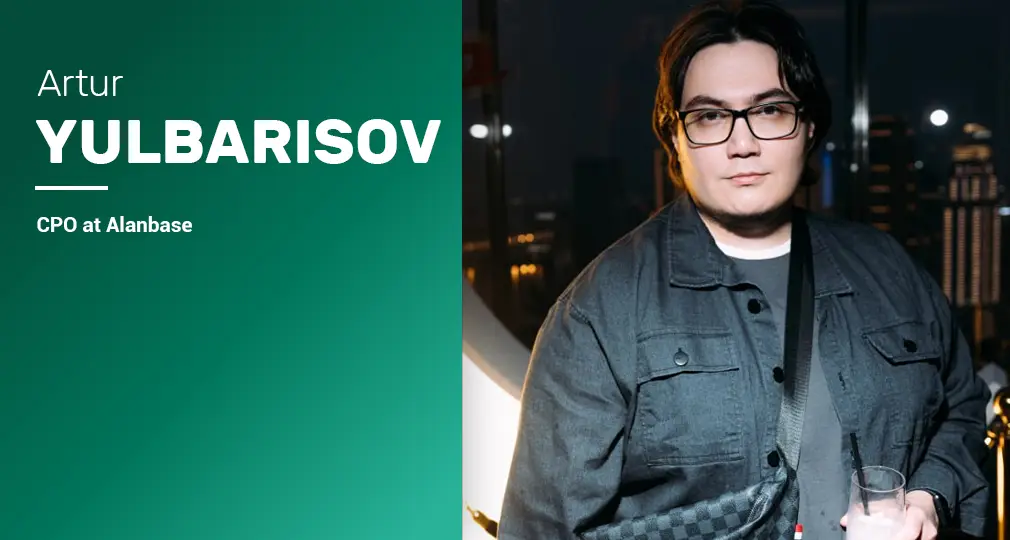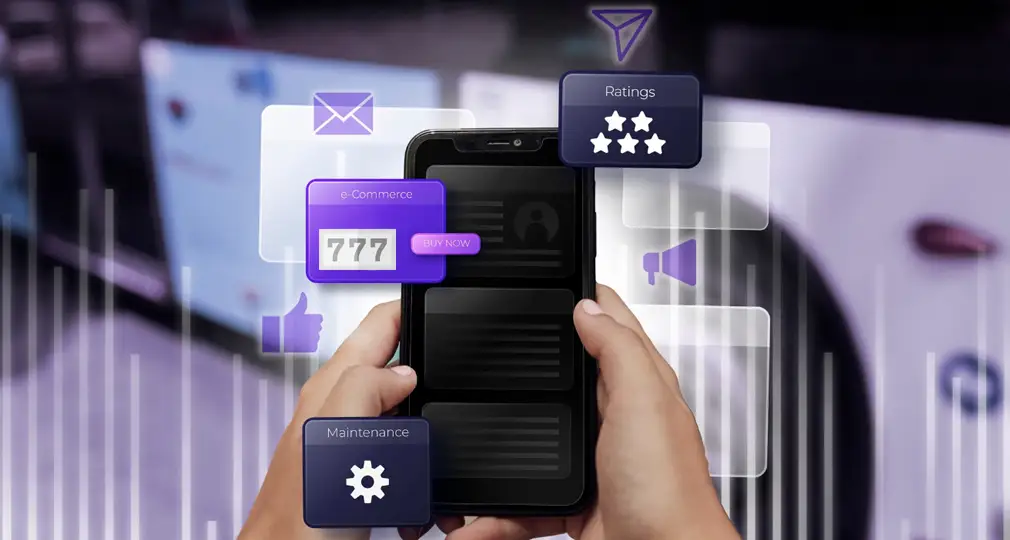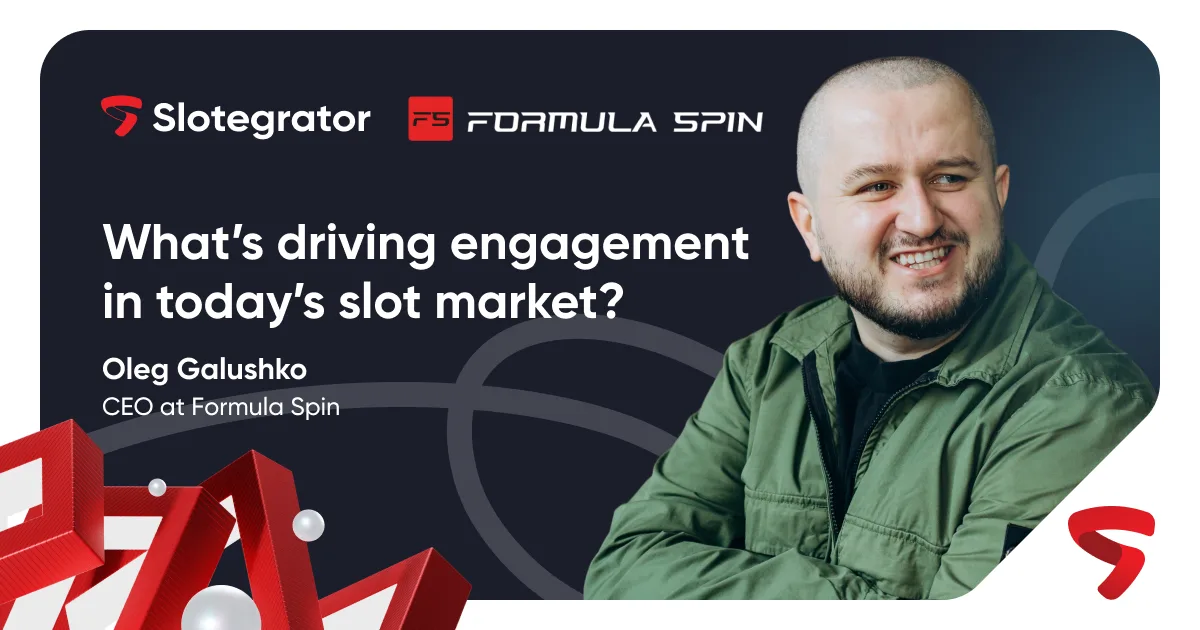We met with Artur Yulbarisov, CPO Alanbase – a SaaS platform for creating affiliate programs in iGaming, and asked him about trends in the iGaming market. Here are the questions:
- In which countries do brands launch products today?;
- How do you create a new product? How much does it cost, and what does it take?;
- Which payment models do affiliates choose in tier 1, tier 2, and tier 3?
– and many more.
GBC: Arthur, you have been in the market for more than 5 years. Please tell us how the affiliate marketing market has changed over the past 2 years. Have you noticed a trend towards an increase in the number of new brands on the market, or is the market shaping up into several major players in the region, and there are few new products?
Arthur: Hello everyone! I am glad to participate in the interview. Thank you for inviting me!
Yes, indeed, we are seeing an increase in the number of products and partner programs in various niches. I think this is because entering the market is becoming more accessible, and there are more and more new simple tools.
For example, in the past, to create a chatbot, you had to learn programming language amd to study the operation of the API of the platform on which the bot was being created, and write it from beginning to end, but now there are many visual designers.
We see the same trend in the affiliate marketing market. Today it is easy for even small brands to start due to the fact that it is easy to find a methodology for opening and developing their brand (for example, in your GBC media), software for setting up an affiliate program, and the product itself. Note that the first affiliate program on the Internet was created in 1989 for a flower shop(PC Flowers and Gifts), so I think we will come to this – any simple flower shop will have its own affiliate program.
GBC: You have been on the market for a long time, so I wonder if you see trends towards any particular country over the past year or two? Perhaps some product formats or CPA grids in iGaming are becoming more and more trending.
Arthur: We all know about the most obvious trend—Latin America—and it has not lost its relevance. Moreover, Latin America is now going through an era of licensing: from October 1, all products that have not been submitted for licensing will be banned in Brazil. Yes, this is just one region, but all the more or less large brands are represented in Latin America.
Perhaps the second emerging trend is Africa. I know examples of brands that are already exploring this region, and everything looks more than good. There are many affiliates in Africa who are not only ready to work but also work at much lower rates than in the usual tier 1 and tier 2. We see from the news in niche media that many large brands actively buy local casino brands and providers, which means that the market already believes in this region.
You can also replace the trend with an attempt to leave the player on a platform familiar to him: We show ads in Telegram—we conduct in a Telegram casino, we advertise in a network of iOS applications—we conduct in our iOS application. This increases player engagement, landing page conversion, etc., throughout the funnel.
GBC: AI is integrated everywhere. Are there any interesting ways to use AI in an affiliate program? Do you integrate AI for yourself, and do you want to?
Arthur: The most important trend is an attempt to implement predictive analytics based on AI, which will allow you to calculate the potential return on traffic broken down by traffic sources. We see such attempts in some partner creation software. There are no successful cases so far, but there is definitely a trend, and we plan to implement something similar in the near future.
The second option is an analog of Chat GPT, which replaces affiliate managers. It closes all correspondence on the most typical questions of potential partners of your affiliate program: working conditions, available offers, available geo, where to click if the tracking link has stopped working, etc. For example, we are currently preparing such an update in Alanbase: an AI assistant for the Alanbase FAQ system – which will allow our clients to navigate the software faster and close current tasks faster.
GBC: I would like to immerse myself in internal processes. For example, which payment models are the top on the market? What do partners choose, and most importantly, why? Has the approach of products to payment models changed in recent years? For example, is there a noticeable transition to hybrid?
Arthur: I can’t say about the whole market, but in new regions, affiliates most often work via CPA. This is due, of course, to the fact that affiliates do not yet know the brands, trust them less, and want to get a return on investment here and now. For example, in Africa, which I have already mentioned, affiliates work like this—via CPA—and at significantly lower rates compared to traditional regions.
I also noticed that the market is gradually moving away from the old models with payment for CPM (if we are talking about niche media) towards classic affiliate models – CPA and, less often, Revshare. Although I still see products that pay for CPM, for placing a banner in the media, etc., I tell them about the opportunity to save money by paying not for placement but for a CPA player.
Although it is difficult to talk about the entire market as a whole, everything depends very much on the traffic channel. For example, SEO will never work with you via only the CPA model, but performance traffic, on the contrary, works mainly via CPA because they need working assets here and now.
GBC: Are there any fundamental differences between affiliate programs in tier 1, tier 2, and tier 3? What should be considered before opening your own affiliate program in each of these regions?
Arthur: Before we discuss the affiliate program, we need to discuss the product’s features.
In tier 1, you definitely need to be prepared for strict market regulation (and it varies for each specific country): the possibilities of integration with the registry of self-excluded players, the registry of players who are prohibited from playing (from the blacklist), etc. Also, in tier 1, you need to be prepared for a very scrupulous attitude to the personal data of players, which must be taken into account both when setting up an affiliate program and when calculating marketing budgets: conversions are greatly influenced by your brand awareness.
In tier 3, you need to be prepared for serious traffic filtering due to the fact that a lot of trash traffic can be poured there: the product enters a new market, this is a novelty for the audience here, and of course, a lot of slags will come. Therefore, it seems to me important to choose software for an affiliate program (or make your own) with traffic payback features and fine-tuning.
It is difficult to answer this question in general; it all depends on the specific geo.
GBC: We are seeing a boom in the discovery of new products, casino providers, and related services. Do you think we are currently going through the stage of market formation? Will the market one day become several strong players in each region, or will the atmosphere of easy entry for any arbitrageur remain?
Arthur: It seems to me that we are now in the nascent stage of the industry in general. New ideas, mechanics, and platforms are constantly appearing. Everything is actively developing, and we will definitely not see stagnation in the market and ideas in the next 20-30 years. We will just see new forms of this or that mechanics, this or that fundamental idea, everything will constantly change and progress.
It seems that in the near foreseeable future, there will not be a situation where the entire market will be controlled by several major players – there will always be young blood who thinks better and faster than old ones 😉
GBC: I repeat, we are definitely experiencing a boom in gambling. Do you see such a trend in betting? Why you think so or not depends on your answer.
Arthur: There are indeed fewer volumes in betting in general, however, it depends on the region where you work. Bookmakers make the main revenue from events like the FIFA World Cup, and in between, their revenue is reduced when there are no events.
In addition, I would like to mention that entering the betting market is more challenging than entering the gambling market. It is very difficult for a new player to enter traditional countries like England due to strict regulation and competition: there are many local legal and illegal bookmakers here. Well, this is tier 1, so you will have to seriously invest in marketing a new brand so that customers begin to trust you.
And in a new geo, like Brazil, you need to dive very deeply into the local mentality. Brazil is a very gambling region, they bet on everything here – from rooster fights to cockroach fights – but with a mentality, you need to be able to work to get consistently high conversions. That’s why we see that large brands create separate departments for this geo, for example, our client BetBoom Partners, who have a separate team for classic betting and esports in Brazil.
Perhaps a certain trend in betting is the new types of events on which bookmakers have begun to accept bets: on the election results, whether Pavel Durov will be released from prison, etc.
GBC: What is the minimum set of new products now: a provider, software for an affiliate program, or maybe something else? And how much does it all cost?
Arthur: If we are talking about casinos, the first thing to understand is: Do you develop everything yourself, or do you go for a ready-made solution? Spoiler alert: I recommend doing everything by yourself only for products with a good budget and, more importantly, with good expertise.
The minimum you will need is:
- casino software (backend and design)
- software for creating affiliate programs
- software for player retention
You can open a casino for $20-30k, and it costs $2 million to open a successful casino because you must have a financial cushion that will allow you to wait for a profit.
Launching a casino is not enough. Next, we will have to work on building processes within the company to interact with players and retain them. This already requires much more money, which will allow you to both build the team’s work and cover all costs before the product becomes self-sufficient and pays off.
It is difficult to establish the product’s period of payback as a whole, but when working on the CPA model, we can safely talk about the player’s payback in 2-10 months, depending on the region and your work with the player data.
GBC: We know that Latin America and Africa often still work via Excel and don’t even look towards software for an affiliate program. How soon do you think this will change? What arguments have you given for such products to move to affiliate program software right now?
Arthur: Yes, indeed, I know such insights: most of the local products in Latin America still work in Excel spreadsheets. It’s the same in Africa.
How quickly this will change depends on the region’s attractiveness to more progressive market players. If the market realizes that there is a lot of money in this region, large brands will come there, which will bring a culture of work in CRM, affiliate program software, etc. This is a natural evolution of the market; it works in any region.
Why will they definitely come to the software? The software eliminates the need for process automation, which frees up the time of owners and a team for scaling.
GBC: At the same time, it is noticeable that software for an affiliate program does not create as often as casinos and CPA networks. What do you think is the reason for this?
Arthur: To create such a product, expertise is needed, and this expertise is very expensive. In addition, it all costs a lot of money, and the return on investment is definitely slower than in a casino.
Although we see that the casino market is growing, and with it the number of affiliate programs is growing, which means that we can assume that the number of software for creating affiliate programs will also grow.
GBC: Software for affiliate programs as a product is expensive. Does Alanbase have a strategy to capture a significant market share? If you try to name the numbers, where are you going now?
Arthur: Yes, we have a large-scale plan to capture a considerable market share, but I’m not ready to share the details yet. We are already well known in Eastern Europe and are actively moving forward in other regions.
One thing I can say is that we are developing a full-fledged ecosystem for iGaming products, in which products will receive the entire product cycle to create their brand. But we will talk about this in the next interviews when we are ready.
GBC: At Alanbase, you work with really big companies with big budgets. Why don’t they create a self-made affiliate program with such a volume so that they can do everything for themselves at once and not pay for a subscription?
Arthur: Creating your own affiliate program is very expensive and time-consuming. You will spend money on a team, on development, on constant revision (without expertise, it is impossible to immediately assemble the perfect solution), and on maintaining the program. It might cost from $30k/month. You can pay us $500/month and receive a full set of features necessary for an affiliate program, 24/7 support, and our expertise.
We have many such clients, including BetBoom Partners, Betera Partners, 4rabet Partners, etc.
GBC: You at Alanbase often point out in marketing materials as your advantage that you are dynamically developing and refining software. Have any features been added during the last year? Is this a market requirement, or are customers asking?
Arthur: It’s true that we are constantly updating the software and always proceeding with the market’s requirements. The last thing that we have finalized is a cohort analysis within the affiliate program, with which affiliates can see the payback of traffic: when they start to get deposits from the 3-month-old registrations, calculate their LTV, and more.
GBC: Thank you, Arthur! It was fascinating!
Read More: Best Affiliate Software Platforms 2024















